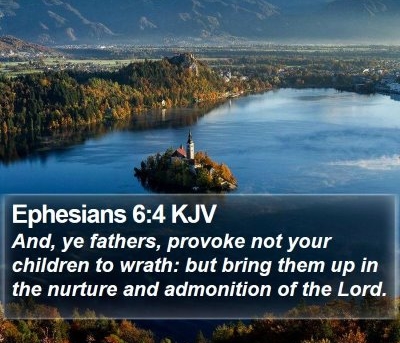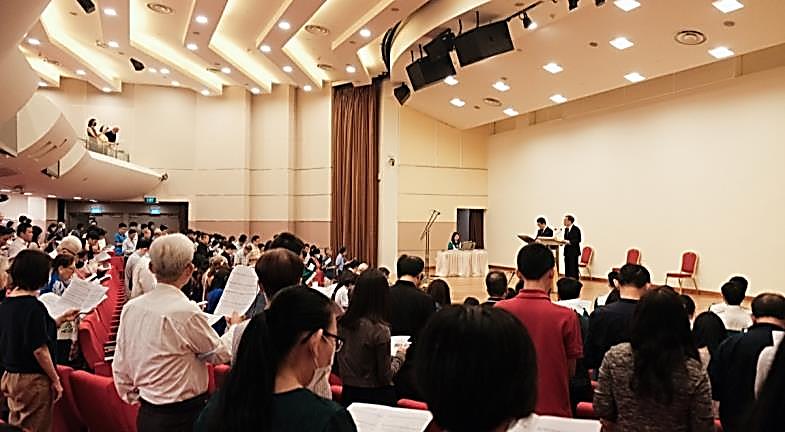JESUS CHRIST OUR SOLE MEDIATOR
Rev Samuel Joseph

The human race, represented in Adam, sinned in him and fell with him in his first transgression; in the covenant of grace, God provided another federal head, the Lord Jesus Christ, in whom those dead in Adam might live (Rom 5:18-19). In order to accomplish the work of redemption, our Mediator, the Lord Jesus Christ, as both God and man, had to both satisfy the wrath of God resting upon us as lawbreakers (original sin), and gain on our behalf the blessings of eternal life by His righteous obedience of God’s law. Thus we say that the work of redemption involved both the passive and the active obedience of Christ. For the discharge of this office and this twofold obedience, the Lord Jesus as the eternal Son of God took to Himself a complete human nature, was made under the law, in a lowly estate (Gal 4:4-5): as the God-man He perfectly fulfilled the law (Matt 3:17, 17:5), and suffered in body and soul; all this culminating in His death on the cross, where He suffered the full penalty of God’s wrath and justice for our sins (Matt 27:46). The Lord Jesus was buried, thus remaining under the power of death for a time; He rose gloriously and victoriously on the third day, signifying His total defeat of sin and death on behalf of His people. He arose with the same body with which He suffered, and is now ascended to the right hand of the Father, where He continues to intercede for His people and overrule all things for their good (Heb 7:25). He is coming again, according to His promise, to receive us unto Himself, that where He is, there we may be also, forever (John 14:1-3).
All this is essential to the gospel and salvation. It was necessary for the Lord Jesus our Mediator to be God, because in order to be our Mediator He had to be perfect (to be an acceptable sacrifice), precious (to be a sacrifice of infinite worth), and powerful (to accomplish that victory over sin and death which human nature cannot). It was necessary, also, for our Mediator to be man, because in order to be our Mediator He must sympathise with us, and substitute for us (Heb 2:16-18). Both the active and the passive obedience of Christ are necessary; there must be that twofold obedience, because now after Adam’s transgression we are no longer in a state of innocence or probation. We need our Mediator both to take our guilt, and to give us His righteousness (2 Cor 5:21). The resurrection is most necessary because it demonstrates the complete fulfilment of all that was necessary for our salvation, and the complete acceptance of Christ’s vicarious sacrifice of Himself (Acts 13:32-39); it demonstrates also the redemption of the body as well as the soul, and gives us our hope of a bodily resurrection (1 Cor 15:20-23). The second coming of the Lord is that for which we long and wait; it is the fullness of the inheritance that the Lord has won for us, in His eternal kingdom (1 Cor 15:24-28). The gospel message is incomplete, if any of these elements is missing.
BIBLICAL PARENTING (II)
Rev Samuel Joseph
The Duty of Parenting
Our focus now is on some aspects of our duty as parents. On some level, of course, it is universally recognised that parents have a duty to care for their children; but we tend to think of this duty exclusively in worldly terms, as though our responsibility as parents is to help our children to be successful in their careers, prosperous, well-educated, and so on. These are worldly goals: but our priority as Christian parents should be different, coming out of a recognition of God’s purpose, and assured by His promises. These worldly goals are not necessarily wrong in themselves; but they can be a distraction, and may detract from spiritual priorities. Wisdom and prayer is required, for how we raise our children when they are young, matters a great deal for their future. But God has not left us without guidance. We are taught in God’s Word how to be good parents, and we see some of this here, in Ephesians 6:4.

The command here is to rule over our children in such a way as to lead them in their walk with the Lord, firstly through discipline. The command is addressed to fathers, particularly, as the heads of their wives and heads of their homes: the primary responsibility for order of whole household, is theirs. But the command applies to mothers, also. The command is, to “provoke not” our children to wrath. There are many ways that parents can provoke in this way: parents can be unfair, forbidding to their children things which they do themselves, or favouring one child over another; parents can be rude or even cruel to their children, going too far in punishment, such that it becomes a venting of anger. Far from accomplishing the purpose of correcting our children, such discipline will only provoke them to wrath, and cause further sin.
This caution is not meant to give the impression that discipline is bad for the child; in fact, such punitive correction is most necessary. As we have seen already, our children are sinners by nature, innately corrupt: left to themselves, they will do what is bad, not what is good. Hence discipline is important to teach them what is right and what is wrong, the consequences of sin, as something which is displeasing to God. Eli’s failure (1 Sam 3:13) is a warning to us all, that it is a necessary part of parenting to restrain sin in our children. Yet we are also warned here not to go too far in our discipline of our children; not to forget that in disciplining them, we are discharging a duty before God, to whom we are accountable! When we punish our children for wrongdoing, we are not just punishing them for our own ends, our own pleasure or convenience, or out of our own frustration. No good comes out of provoking our children to wrath with our disciplining! We ought rather to be sensitive, and thoughtful, considering the character and temperament of each particular child. When we do punish our children, we want them to know that we do so out of genuine love for them. It requires great patience, to discipline a child in this way. We should therefore also be cautious of jumping to conclusions, and criticising too quickly, as we observe other parents dealing with their children: let us not rashly judge the long process of discipline by a single snapshot!
Really such discipline comes under the umbrella of nurture: it is part of bringing up our children in the nurture and admonition of the Lord. “Nurture” refers to training and instruction, including discipline; admonition also refers to warning. Parents must train their children in what is good and right, and warn them against the wrong. This must be done sternly if necessary, but always lovingly; after all, this is how God deals with us as our heavenly Father, and we ought to deal with our children in such a way as to reflect the fatherly love of God which we ourselves experience. We must not go too far, and provoke them to wrath by being unfair or overly harsh in discipline, nor can we afford to be over-indulgent. Our children should learn to be obedient out of love and out of fear: the two really go together, and cannot be disconnected or separated. Only then will they continue in this path, when they are old.
All this is to be done “in the Lord” ‒ in submission to Him, and in reliance upon Him. We must submit to Him, as parents, because otherwise it will be easy for us to go our own way, and follow our own convenience; submission keeps us accountable to the Lord, gives us that higher motive, keeps us persevering in difficulties. We must rely on the Lord, because we really need His help and guidance. We are accountable, ultimately, to Him.
We must emphasise, in closing, that what is being described here is the duty of parents, before the Lord; there is no substitute for the role of the parents. The training of children in this way is not even primarily the church’s duty: our children need Christian homes; they need to see the love of God displayed, and the law of God obeyed, in the home; they need to be taught, admonished, spiritually nurtured, at home. Of course, in those cases where believing children and unbelieving parents, or where a child’s parents have been taken away, the church can help, and the Lord is gracious: but if we neglect this parental responsibility, what a blessing is lost to our children!
It may be difficult to keep this in mind and in practice, in the midst of the hectic busyness that consumes so much of our days. But it is a crucial aspect of parental duty. Let us take up the task to teach our children about God, His Word, His will, His law; let us diligently prepare our children to serve the Lord even in this fallen world, and warn them against the many spiritual dangers they will have to face. Let us as parents exemplify godliness to our children ‒ part of our parental duty, also, is to guard and watch ourselves, as faithful students of God’s Word, because we have the sacred trust of teaching our children. There is a vital importance to the role of parents, fathers as fathers, mothers as mothers: this is crucial for growth and nurture of our children. Once again, there is a great encouragement in the promise of parenting, as we wait on God’s help and consider His plan. But it will all be to no avail, if we do not look to the duty of parenting, and do our part: much of what God purposes to accomplish, He has purposed to accomplish through us; this is our privilege, so let us do our duty, joyfully!



